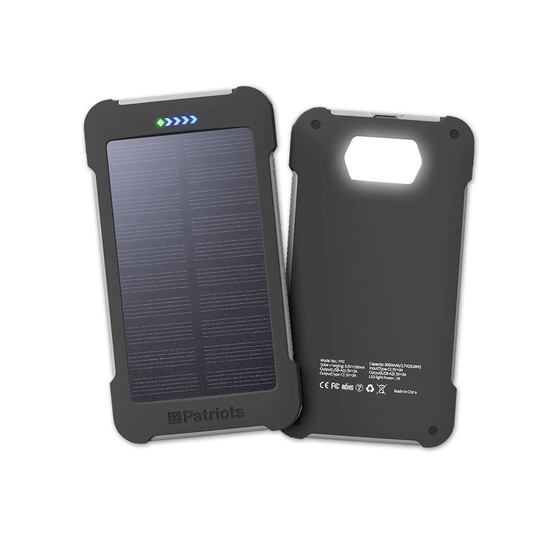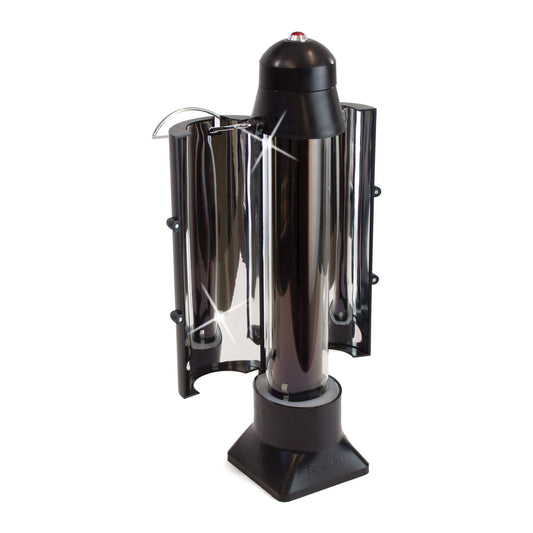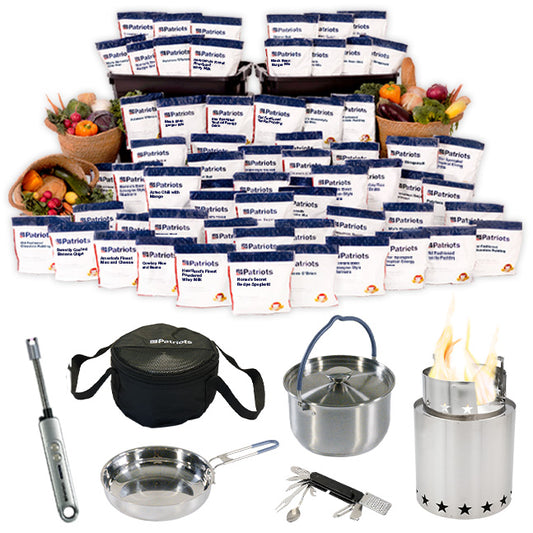
What Exactly Is a Pandemic, Anyway?

Lately we’ve all being hearing the word “pandemic” bandied about. From media. From healthcare professionals. And from ordinary citizens.
The new coronavirus is not yet officially a pandemic. But some health officials are saying it will become one soon. Especially after 76,000 confirmed cases and 2,000 deaths have been reported across 24 countries, as of this writing.
Marc Lipsitch is an epidemiologist from Harvard University. He says that “it’s likely we’ll see a global pandemic” of coronavirus. With 40 to 70 percent of the world’s population likely to be infected this year.
The director of the Centers for Disease Control and Prevention’s National Center for Immunization and Respiratory Diseases is also very concerned. Dr. Nancy Messonnier says the CDC is taking steps to prepare for the coronavirus to “take a foothold in the U.S.”
Epidemic vs. pandemic
Before we delve further into this, let’s make sure we know the difference between a pandemic and an epidemic. An epidemic is a widespread occurrence of an infectious disease in a community at a particular time.
It can usually be defeated by quarantines and modern medicine. Examples are the Zika virus that started in Brazil in 2014, and the Ebola outbreak in West Africa from 2014 to 2016.
A pandemic, on the other hand, is the occurrence of an infectious disease over a wide geographic area. And affecting a high percentage of the population. The word comes from the Greek words “pan,” meaning “all,” and “demos,” meaning “people.”
An example is the 1918 Spanish flu that killed 50-100 million people. Modern medicine is unable to control the spread of a pandemic. That’s why we’re hearing the word so often these days. So far, the coronavirus has proved to be unstoppable.
H1N1 flu was last pandemic
For a disease to be labeled as a pandemic by the World Health Organization (WHO), it does not have to infect people all over the world. But it does need to be widespread.
The word “pandemic” is usually used in connection with influenza. Such as with a new swine flu virus or a bird flu virus. Or a flu strain circulating among chickens.
Also, a pandemic does not necessarily mean the disease is severe. The term really applies more to the area it covers.
The 2009 H1N1 flu pandemic, for example, killed about the same number of people as the “regular” flu kills each year.
More deadly than SARS & MERS
Some people have said that the world is “overdue” for a pandemic. That’s not really accurate because pandemics are random events. There is no pattern to them.
But based on the history of pandemics, one is sure to come along eventually. So far, we don’t know if the coronavirus will qualify as one.
The current coronavirus is now officially being called SARS-CoV-2. The disease being caused by the virus is called Covid-19.
Whatever it’s called, it has the potential to be much more deadly than a typical flu. It is already more deadly than SARS and MERS combined. Despite only being around for about two months.
2 percent of cases have died
WHO has recently released data from China. That’s where the coronavirus started. It says 82 percent of the confirmed cases have been only “mildly” infected.
About 15 percent of the cases have been severe enough to require hospital care. About 3 percent have needed intensive care. Two percent of the confirmed cases have died.
Dr. Mike Ryan is WHO’s health emergencies director. Here’s what he says about the coronavirus.
“This disease may appear relatively mild in the context of a sophisticated health system. That may not be the case should this disease reach a system that is not as capable as that of China.”
Preparing for a pandemic
As with most things, being prepared is the answer. The single most import thing to remember when it comes to a pandemic is don’t depend on the government for help.
It’s possible you may be able to gain some assistance from the government. Such as access to newly developed vaccines or treatment medicines. But you will be far better off if you’ve prepared for it in advance.
Following are some steps you can take – before and during a pandemic – to lower the chances that you will be a victim of a virus such as coronavirus.
Before a pandemic strikes
- Stockpile plenty of survival food and clean drinking water. At least three months’ worth is recommended.
- Ask your doctor for an “advance” on your prescription drugs. That will ensure you have your necessary medications even if supply chains break down.
- Get copies and maintain electronic versions of health records from doctors, hospitals, pharmacies and other sources.
- Don’t forget about your pets. Stockpile food, litter, bedding, toys, etc. They could be cooped up with you for an extended period of time.
- Prepare for a potential quarantine of three weeks or more. This means stocking up on everything you and your family could possibly need if a pandemic were to occur and going outside your home became a risky venture. Including over-the-counter medications you think you or other family members might need.
During a pandemic
- Wash your hands often with soap and water. Transmitting a virus from your hands to your face is the most common way of getting sick. The CDC calls this strategy the “do-it-yourself vaccine.”
- Avoid touching your face. Easier said than done, right? This one requires discipline and a good memory.
- Use bleach wipes to clean anything you use frequently or near your face, such as a cellphone.
- Don’t shake hands with people. It’s better to seem impolite than to become infected by someone with whom you shake hands.
- Isolate yourself as much as possible from infected people, especially when it comes to public transportation and events where there are large crowds. If that means pulling children or grandchildren out of school and telling your boss you have to work from home for a few days, so be it.
- Get plenty of rest and sleep. The stronger your body is, the better chance that it will successfully fight off a possible infection.
- Take plenty of Vitamin C. You can accomplish this in pill or gummy form, or by eating and drinking foods and beverages that are high in Vitamin C.
- Drink plenty of fluids, especially water. Make sure your water is purified. Use water purification tablets if necessary. And don’t neglect beverages that replace electrolytes.
- Watch where you sneeze. Use the crook of your arm to sneeze into, not your hands or the air.
- Wear a respirator when you have to be out in public. They look like pandemic masks, which only prevent the wearer from spreading germs, but they protect the wearer from inhaling germs. It’s your first line of defense against viruses.
- Wear gloves and goggles. If you have to be out and about during a pandemic, wear nitrile exam, latex or heavy-duty rubber gloves. All it takes is a small cut on your hand or finger to allow a virus into your body. Also, goggles will keep your eyes safe from contaminated droplets from sneezes.
- Keep a portable radio handy. If a pandemic breaks out and normal communication lines are disrupted, you may be dependent upon a radio for vital communications.
Listen folks, even though we have modern medicine today, there are many aspects of a pandemic that society at large are unable to control...
And while most of this sounds very disturbing, it’s important to remember that coronavirus hasn’t reached pandemic levels yet. And it’s not too late to prepare.
Take the steps to prepare yourself and your family and get peace of mind as the potential threat of the coronavirus continues to spread.
Featured Products
- Regular price
- $699.95
- Regular price
-
- Sale price
- $699.95
- Unit price
- per
- Regular price
- $2,999.95
- Regular price
-
- Sale price
- $2,999.95
- Unit price
- per
- Regular price
- From $29.95
- Regular price
-
- Sale price
- From $29.95
- Unit price
- per
- Regular price
- $3,499.95
- Regular price
-
- Sale price
- $3,499.95
- Unit price
- per
- Regular price
- From $29.95
- Regular price
-
- Sale price
- From $29.95
- Unit price
- per
- Regular price
- $2,499.95
- Regular price
-
- Sale price
- $2,499.95
- Unit price
- per
- Regular price
- $499.95
- Regular price
-
- Sale price
- $499.95
- Unit price
- per
- Regular price
- $999.95
- Regular price
-
- Sale price
- $999.95
- Unit price
- per
- Regular price
- From $29.95
- Regular price
-
- Sale price
- From $29.95
- Unit price
- per
- Regular price
- $2,999.95
- Regular price
-
- Sale price
- $2,999.95
- Unit price
- per
- Regular price
- From $2,796.95
- Regular price
-
$8,390.95 - Sale price
- From $2,796.95
- Unit price
- per
- Regular price
- $4,999.95
- Regular price
-
- Sale price
- $4,999.95
- Unit price
- per
- Regular price
- From $129.95
- Regular price
-
$259.95 - Sale price
- From $129.95
- Unit price
- per
- Regular price
- $847.95
- Regular price
-
$897.95 - Sale price
- $847.95
- Unit price
- per
- Regular price
- $1,999.95
- Regular price
-
- Sale price
- $1,999.95
- Unit price
- per
- Regular price
- $279.95
- Regular price
-
- Sale price
- $279.95
- Unit price
- per
- Regular price
- From $69.95
- Regular price
-
- Sale price
- From $69.95
- Unit price
- per
- Regular price
- $29.95
- Regular price
-
- Sale price
- $29.95
- Unit price
- per
- Regular price
- $849.95
- Regular price
-
- Sale price
- $849.95
- Unit price
- per
- Regular price
- $249.95
- Regular price
-
- Sale price
- $249.95
- Unit price
- per
- Regular price
- $199.95
- Regular price
-
- Sale price
- $199.95
- Unit price
- per
- Regular price
- $129.95
- Regular price
-
- Sale price
- $129.95
- Unit price
- per
- Regular price
- $114.95
- Regular price
-
- Sale price
- $114.95
- Unit price
- per
- Regular price
- $69.90
- Regular price
-
- Sale price
- $69.90
- Unit price
- per
- Regular price
- $19.95
- Regular price
-
- Sale price
- $19.95
- Unit price
- per

























Comments
Steve - February 29, 2020
Thanks for the Info!!!
Mary Ridgeway - March 04, 2020